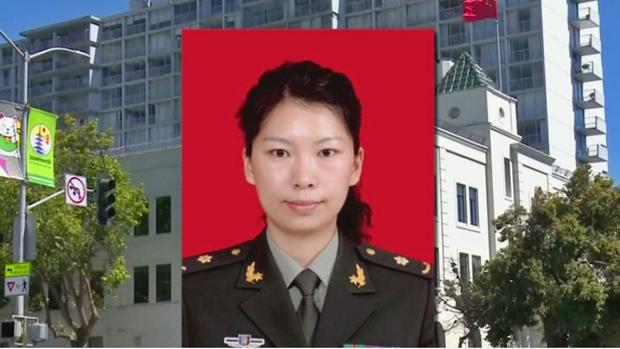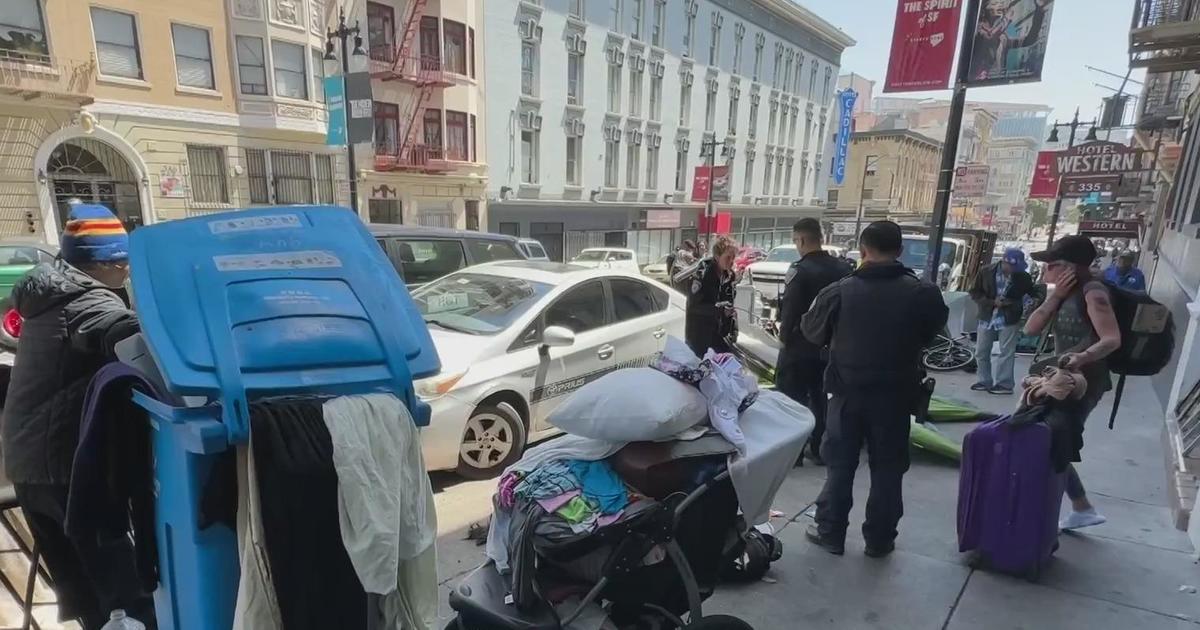FBI Takes Wanted Chinese Researcher Into Custody; She Had Been Harbored In SF Consulate
SAN FRANCISCO (CBS SF/CNN) — A Chinese researcher, wanted on visa fraud charges and being harbored inside San Francisco's Chinese Consulate, was arrested by FBI agents and was being held in Sacramento, authorities announced on Friday.
Senior US government officials told CNN Friday morning that Tang Juan -- who had hidden her status as a member of the People's Liberation Army while working as researcher at UC-Davis -- had been taken into custody.
A senior Justice Department official said the researcher, who said she was focusing on biology, "was a fugitive from justice until last night." She was expected to make an appearance in court on July 27th.
The FBI said on Thursday that she was being harbored within the consulate amid rising tensions between China and the United States over the theft of engineering and scientific research.
Tang Juan and the three other researchers are accused of lying on applications to work in the United States about their status as members of the People's Liberation Army, which is part of the Chinese military. All are charged with visa fraud.
Xin Wang, a major in China's People's Liberation Army, was arrested on June 7th at Los Angeles International Airport. He told federal authorities that he had been stealing secrets from the medical researchers at the University of California, San Francisco.
Related: Chinese Army Major Arrested At LAX, Accused Of Stealing Medical Research from UCSF
Federal authorities said both Chen Song and Kaikai Zhao were arrested on July 18th. Investigators have not revealed where the two may have been employed.
According to a Justice Department criminal complaint, Tang lied about her military affiliation in a visa application last October to work at the University of California, Davis and again during an FBI interview last month.
ALSO READ: Stanford Researcher Accused Of Being Active Member Of Chinese Military, Charged With Visa Fraud
Agents found photographs of Tang in a uniform of the People's Liberation Army civilian cadre and also reviewed articles from China that identified her military affiliation.
The FBI last month interviewed Tang, when she denied having served in the military or knowing the significance of the insignia on the uniform she was photographed wearing, and also found more evidence of her military affiliation when they later searched her home, the complaint says.
"The FBI assesses that, at some point following the search and interview of Tang on June 20, 2020, Tang went to the Chinese consulate in San Francisco, where the FBI assesses she has remained," prosecutors wrote in a July 20 court filing that seeks the detention of another Chinese scientist who the Justice Department says lied about her military background to enter the U.S.
ALSO READ: Chinese Army Major Arrested At LAX, Accused Of Stealing Medical Research from UCSF
The document alleges efforts by multiple Chinese nationals to conceal their ties to the military or government, and says "the Chinese government has instructed PLA members in the United States to obstruct justice by deleting information from their devices."
The allegation comes amid rising tension between the U.S. and China, particularly related to theft of intellectual property — including by Chinese researchers with connections to the military and government — for Beijing's benefit. Just this week, the U.S. ordered the closure of the Chinese consulate in Houston, and the Justice Department charged two Chinese hackers with targeting firms working on vaccines for the coronavirus.
In a statement, UC Davis said its medical school was providing law enforcement officials with information they had requested. The university said Tang had been a visiting researcher in the Department of Radiation Oncology whose work was funded by an exchange program affiliated with China's Ministry of Education and Xijing Hosital.
Tang left the university at the end of June, and her work was based solely in the research laboratory, the school said.
ALSO READ: Secretary Of State: US 'Looking At' Banning TikTok, Other Chinese Social Media Apps
The FBI, meanwhile, has interviewed visa holders in more than 25 American cities who are suspected of concealing their ties to the Chinese military. The Justice Department believes that the deception is part of an ongoing, government-sponsored effort to steal research and innovation from American universities for Beijing's economic gain.
"This is another part of the Chinese Communist Party's plan to take advantage of our open society and exploit academic institutions," John Demers, the Justice Department's top national security official, said in a statement.
"First, I would say the Trump administration has been on an escalating campaign of rhetoric and actions pointing to China as the enemy," said Daniel Sneider, an international policy expert at Stanford University. "Some of this is linked, of course, to the coronavirus situation."
The Trump administration has already closed the Chinese consulate in Houston where documents were allegedly burned. China has denounced the action as outrageous and has warned it would draw a firm response. On Friday, the Chinese government ordered the U.S. to close its consulate in the western city of Chengdu.
"As far as closing additional embassies, it's always possible," President Trump said earlier this week.
"Perhaps this woman and the Chinese government perceive this as a case of political persecution," said Sneider. "I don't know, but it is a little bit unusual."
"But behind it is the deeper issues about economic competition, intellectual property issues between China and the United States."
Wilson Walker contributed to this report.
© Copyright 2020 CBS Broadcasting Inc. All Rights Reserved. This material may not be published, broadcast, rewritten. CNN and Associated Press contributed to this report.




